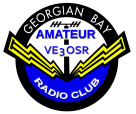Posts: 27
Threads: 11
Likes Received:
12 in 6 posts
Likes Given: 39
Joined: Jun 2019
Reputation:
61
i'm wondering how important are radials or counterpoise for building antennas.i want to build a portable using
a hustler whip antenna,how do i figure out the lengths that i need.
thanks
IP Address: 66.206.229.123
Posts: 236
Threads: 108
Likes Received:
70 in 52 posts
Likes Given: 56
Joined: Jul 2019
Reputation:
259
Good question Bobby. The simple answer is that a counterpoise or radials are quite essential. A vertical antenna is usually (but not always) a quarter wavelength. It needs another quarter of a wavelength to complete the antenna and that is provided by a counterpoise. A counterpoise is a single wire, a quarter wavelength long that is suspended above ground. Using a single counterpoise results in lower efficiency than a set of radials but is often used for rapid deployment portable stations. The length is calculated using the formula L=234/f where f is the desired operating frequency.
Radials are very similar except there is usually more than one and they are usually mounted directly on the ground (or buried in the ground). The antenna itself is mounted close to the ground. The purpose of radials is to provide a ground plane where soil conductivity is poor or unknown. The length of buried radials is not critical because they are detuned by the ground. What is important is the quantity of radials. There should be lots of them. Antenna efficiency is improved as the number of radials is increased. Most sources recommend at least 16; broadcast antennas use hundreds of radials. However, if the antenna is raised above ground, fewer radials are required. A raised quarter wave vertical antenna is called a Ground Plane Antenna and will operate efficiently with only four radials.
Another alternative is to use an artificial ground aka a Ground Tuner. This device is a series L-C circuit in which both the inductor and capacitor are variable. It is connected to a small metal plate laying on, but insulated from, the ground. Ground tuners include a RF sensing circuit and a meter. The tuner is adjusted by switching taps on the inductor until a high reading is obtained on the meter. The meter deflection is peaked using the variable capacitor.
I operated the recent Winter Field Day on 40m using a vertical antenna with a fence wire for a counterpoise. The fence wire was a little short for a quarter wave on 40m so I did some calculations and constructed a fixed, series L-C circuit to bring it to resonance. It worked very well for me.
In your specific case your best option may be to mount your Hustler above ground with four radial wires cut to one quarter wavelength using the formula L=234/f.
John VA3KOT
Blog: HamRadioOutsideTheBox.ca
IP Address: 99.249.244.56




